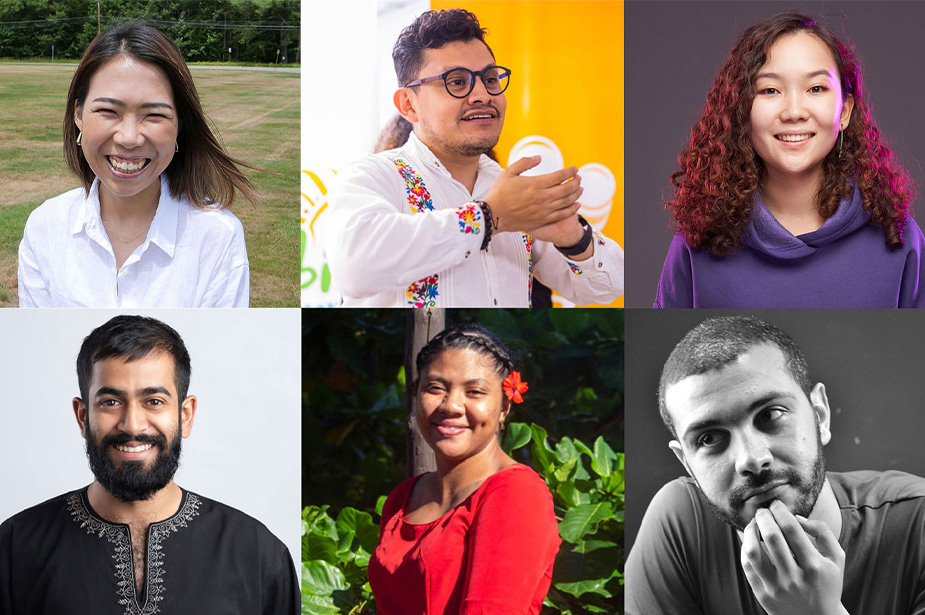Find out more in
Global Issues:
“Shootings, that’s why I left. Rapes. All that. I could not stay [back home]” – Solona, 14
Armed groups in Port-au-Prince and the Artibonite region are terrorizing entire communities. As streets, schools and playgrounds have been turned into battlefields, many have had no choice but to leave everything behind. Thousands are now stranded in makeshift displacement sites. Struggling to access electricity, food, water, and adequate sanitation. Entire families are sleeping outside on the ground, at the mercy of torrential rains and disease-carrying insects. Children unable to go to school.
Violence in Haiti has reached shocking levels. UNICEF continues to call for an end to the violence.
Salma Akter Aduri’s family, potato farmers from Rangpur, Bangladesh, struggled to sell their cash crops at a profitable price. Facing dire circumstances, it looked like they would be forced to either give up their land or take high-interest loans from moneylenders, they joined the Birahim Farmer’s Cooperative, which received support through the Missing Middle Initiative. This initiative, implemented by the Food and Agriculture Organization of the United Nations (FAO) and funded by the Global Agriculture and Food Security Program (GAFSP), worked with farmers to improve access to finance, markets, technology, and information.
Salma Akter Aduri’s family, potato farmers from Rangpur, Bangladesh, struggled to sell their cash crops at a profitable price. Facing dire circumstances, it looked like they would be forced to either give up their land or take high-interest loans from moneylenders, they joined the Birahim Farmer’s Cooperative, which received support through the Missing Middle Initiative. This initiative, implemented by the Food and Agriculture Organization of the United Nations (FAO) and funded by the Global Agriculture and Food Security Program (GAFSP), worked with farmers to improve access to finance, markets, technology, and information.
If you ask people how they would define comprehensive sexuality education, you’ll probably get a range of responses, possibly peppered with misinformation and confusion. Here are the facts: Comprehensive sexuality education is a process of teaching the emotional, physical and social aspects of sexuality, with a goal of helping children stay safe and prepare for the future. It leads to fewer pregnancies, less disease and less abuse. It teaches young people about human development, reproduction and healthy relationships, and about how to recognize abuse, resist peer pressure and understand consent. It saves lives.
Pictured are young people at the Kibirizi youth space in Rwanda’s Rubengera sector.
Young rural people are bringing agriculture into the digital age. Meet three young people in Asia who’ve cracked the code: how to irrigate crops while saving both time and water.
As world leaders prepare to gather for the Summit of the Future, meet 10 young leaders who are leveraging digital solutions to create a secure future for all of us.
Digitalization is transforming our world, offering unprecedented opportunities to accelerate sustainable development. Young people are leading the charge in digital adoption and innovation using technology to drive change and create solutions. As the 2030 deadline for the Sustainable Development Goals (SDGs) approaches, the role of young people in digital innovation is essential for addressing global issues. This International Youth Day (12 August), let’s celebrate the digital contributions of youth, and inspire further innovation and collaboration to achieve sustainable development.
The world faces a multitude of challenges today, many of which affect the youth. It is crucial to equip young people with the necessary skills for fostering a culture of peace, nurturing responsible global citizens, and promoting sustainable development to build a more just, inclusive, and sustainable future for all. On World Youth Skills Day (15 July), let us unite in recognizing the potential of young people as agents of peace and commit to providing them with the skills and opportunities to address challenges and contribute to a peaceful, prosperous, and sustainable future.
The ECOSOC Youth Forum, the largest annual gathering of young people under the UN banner convened at the United Nations from April 16th to 18th. This year’s forum echoed the theme of the 2024 High-level Political Forum: "Reinforcing the 2030 Agenda and eradicating poverty in times of multiple crises: the effective delivery of sustainable, resilient, and innovative solutions." The three-day event featured plenary sessions, interactive thematic and regionally based discussions, and discussions on innovative solutions for young people in the implementation of the 2030 Agenda.
UNICEF has teamed up with spoken word artist @clickfortaz, in support of the 1 in 7 adolescents living with a mental health condition and to promote good mental health and well-being for all children and young people.
The stories of these young human rights champions serve as a source of inspiration, motivating others to take action and educate their communities on the importance of human rights.
Climate change has caused an increase in uncertainty about our future. The unprecedented mobilization of young people worldwide shows their immense power to hold decision-makers accountable. Their message is clear: the older generation has failed, and the young will pay in full — with their very futures. A Global Conference of Youth (GCOY) is taking place ahead of COP28 in Dubai and provides a space for capacity building and policy training. GCOY also brings together all collected inputs, which will be directly fed into the climate negotiations via the official youth policy paper.
UNESCO is actively working with the youth to raise awareness about the damages of the climate crisis and find solutions to address the social impacts of climate change.
With a focus on the Social Impacts of Climate Change, the 13th edition of the UNESCO Youth Forum (November 14-15) underscores the need for an equitable climate transition. As young people’s voices ring loud in their assertion that climate change jeopardizes their future, the event seeks to amplify their role in shaping solutions. With the belief that the social impacts of climate change demand center stage, the Forum provides a crucial platform for young changemakers, offering them the chance to influence policies and collaboratively devise strategies for a just and sustainable future.













